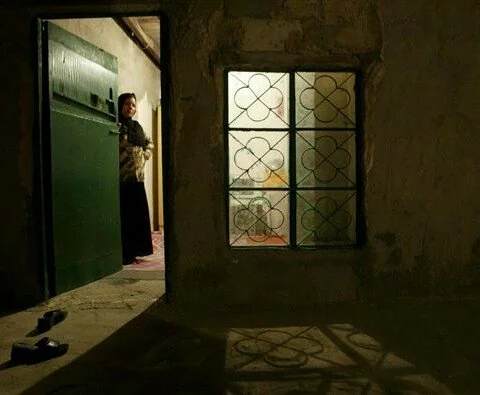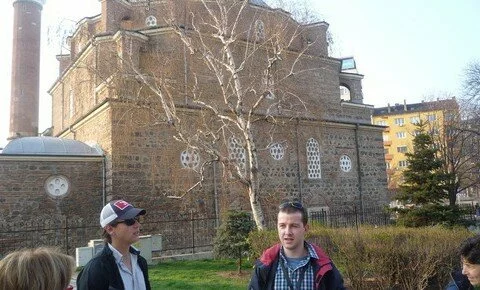KINGSTON, Jamaica – U.S. diplomats have expressed concern that an Islamic cleric convicted of whipping up racial hatred among Muslim converts in Britain might do the same thing in his homeland of Jamaica, according to a leaked cable from the island’s U.S. Embassy.
The dispatch, dated February 2010, warns that that Jamaica could be fertile ground for jihadists because of its underground drug economy, marginalized youth, insufficient security and gang networks in U.S. and British prisons, along with thousands of American tourists.
It says Sheikh Abdullah el-Faisal, who was deported back to Jamaica in January 2010, could be a potential catalyst, and it noted that several Jamaican-born men have been involved in terrorism over the last decade.
Another memo says an associate of el-Faisal was suspected of involvement in a previously unreported terror plot in Montego Bay, a tourist center near where el-Faisal now lives. A second associate was allegedly suspected of threats against a cruise ship in nearby Ocho Rios. No details of the alleged schemes were provided in the cables and both U.S. and Jamaican officials declined to comment on them.
U.S. diplomats and law enforcement officials have expressed concern in the past that Middle Eastern terror groups might forge alliances with drug traffickers or take advantage general lawlessness in parts of Latin America and the Caribbean.
The January 2010 return of “extremist Jamaican-born cleric Sheikh el-Faisal raises serious concerns regarding the propensity for Islamist extremism in the Caribbean at the hands of Jamaican born nationals,” said the secret cable, apparently from Isiah L. Parnell, the deputy chief of mission for the U.S. Embassy in Kingston.
“Given the right motivation, it is conceivable that Jamaica’s disaffected youth could be swayed towards organized crime of a different nature through the teachings of radical Islam,” said the dispatch dated February 25, 2010.
The cable is one of the quarter million confidential American diplomatic dispatches first obtained by anti-secrecy group WikiLeaks and separately obtained by The Associated Press.
There is no hard evidence that Jamaica has a burgeoning problem with extremism, though some of the embassy dispatches list suspected associates of el-Faisal, several labeled as radical Muslims and believed to be involved in drug and human trafficking. One is a 31-year-old Jamaican suspected of involvement in a Montego Bay bomb plot and another man suspected of threats against a cruise ship.
Other Jamaicans involved in terrorism include Germaine Lindsay, one of the four men behind the 2005 suicide bomb attacks on London’s subways, and Lee Boyd Malvo, who was convicted in the deadly sniper attacks that terrorized the Washington, D.C., area in 2002.
Jamaican police say they are monitoring el-Faisal but note that he has no criminal record in the country.
“To the extent that he was living abroad and was convicted of offenses, we do have concerns. But he is a Jamaican and we had to take him back,” said Deputy Police Chief Glenmore Hinds.
One of the leaked U.S. cables said Jamaica’s Ministry of National Security has established a special unit to collect information on Islamic extremism, but it voiced concern about whether the unit would be able to “react rapidly to actionable intelligence and to effectively prosecute an anti-terrorism case in the courts.”
El-Faisal, who is known as “al-Jamaikee,” or “the Jamaican” in Islamist circles, has been living in a rural town outside the northern city of Montego Bay, not far from where he grew up. He has several children.
He declined through a spokesman repeated requests for an interview with the AP.
Mustafa Muhammad, president of the Islamic Council, said el-Faisal’s angry rhetoric and conspiracy theories may attract some young and disenfranchised people, but he doubted it would have much traction among the Jamaica’s roughly 5,000 Muslims.
“Faisal has always been very eloquent and the moment he speaks he captures your attention,” Muhammad said in the library of a whitewashed concrete mosque in Kingston. “That is why it’s so sad, so very sad, about what he has come to believe.”
Jamaica’s Islamic Council has banned el-Faisal from preaching in the country’s mosques because he of his past. He now preaches in informal prayer sessions and conferences.
“He told me that he didn’t think he had ever done anything wrong,” Muhammad said. “That’s a concern to me.”
Born Trevor Forrest in 1963, he was raised in the rolling hills of northern Jamaica. His parents belonged to the Salvation Army, the Christian evangelical group. He converted to Islam after being introduced to the faith by a school teacher at about 16, Muhammad said.
Shortly after his conversion, el-Faisal’s global migrations began. In the early 1980s, he traveled to Trinidad for a Saudi-Arabian-sponsored course in Islamic and Arabic studies. He then went to Guyana for similar studies, according to terrorism researchers.
El-Faisal, now a compactly built 47-year-old man with receding hair, was deported to Jamaica for the second time last year after being arrested in Kenya, where he reportedly encouraged young men to join an extremist Islamic group in Somalia.
Before that, he preached in a London mosque attended by convicted terrorists and was imprisoned in Britain for nearly four and a half years for inciting murder and stirring racial hatred with sermons titled “No peace with the Jews” and “Them versus Us.” In one recorded sermon, he told followers that “the way forward is the bullet.” On another, he said jihadists should use “chemical weapons to exterminate the unbelievers.”
“Faisal’s popularity remains strong with online jihadist supporters, particularly American jihadist groups. His sermons are widely published across the Internet,” said Jarret Brachman, a former CIA analyst who is now an independent terrorism researcher.
Some experts in militant Islam said his isolation in Jamaica may create a mystique that could draw alienated people into his circle.
“There is a danger that Abdullah Faisal will radicalize individuals in Jamaica, just as he has previously done in the U.K. and elsewhere. He is a powerful, charismatic speaker who is easily capable of presenting Islamist extremism as a rational choice,” said James Brandon of the Quilliam Foundation, a British anti-extremism think tank.
Source: Yahoo News
 The “Second Day of Rage” last Friday marked a significant step taken by the Muslim Brotherhood (MB). They announced they would remove political cover for the MB youth, part of the Youth Revolution Coalition (YRC), over their participation in Friday’s protests.
The “Second Day of Rage” last Friday marked a significant step taken by the Muslim Brotherhood (MB). They announced they would remove political cover for the MB youth, part of the Youth Revolution Coalition (YRC), over their participation in Friday’s protests. Open kitchens are the latest addition to the list of supposedly un-Islamic items and behaviors in the Islamic Republic of Iran.
Open kitchens are the latest addition to the list of supposedly un-Islamic items and behaviors in the Islamic Republic of Iran.

